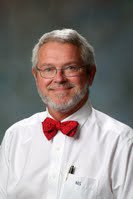Attention Deficits
Just in case you missed it, the jury has returned a verdict. There really is something called attention deficit hyperactivity disorder. The jury is not “still out” on this subject. The jury made its announcement years ago! You can probably tell that I’m tired of discovering folks who still want to deny this impediment to conventional learning.
Anyone who has been in education for any length of time can recognize it in a heartbeat. Heck, we could recognize it before it had a name! The problem, of course, is that there are also students who are occasionally inattentive. There are students who are usually inattentive. There are also students who have actually learned to be inattentive (which alone could be the subject of a doctoral thesis). There are students who have a hard time learning certain subjects, lazy students, oppositional students, and controlling students. And these students do not necessarily suffer from a disorder.
The discipline of acquiring any new skill is, to greater or lesser degrees, unique to each person. Most people develop compensatory elements to make up for their shortfalls in weaker areas. If I am slow at computational mathematics (“mental math”), I might benefit from increased use of flash cards. It is not an option to bail out of the skill set by simply avoiding computation! Using a calculator does not qualify as a compensatory element. It qualifies as a crutch.
Because teachers are called upon at least yearly to perform diagnostic tests of skills, academic areas of concern are usually easy to spot. Behavioral diagnostics are more difficult. In a well-ordered classroom, one with clear expectations and a comfortable routine, eccentric behaviors will raise the necessary flag prompting a conference with the parents. Attention disorders are medical diagnoses, not educational ones. If a child is found to have one of these, appropriate steps (sometimes including medication) are warranted. But a pill does not relieve the student, parent, and teacher from strengthening the compensatory elements that will provide the foundation for a well-functioning adult!
According to some accounts, more than 35% of students diagnosed with attention disorders fail to earn a high school diploma. This number alone ought to be enough to spur further study and research, for a dropout rate of this magnitude affects every one of us.
There is some good news, however. As schools and healthcare providers and parents have involved the child in his or her own treatment, very good results are being seen across the country. Starting with a positive approach (“you have a responsibility to yourself and others”) many children are succeeding beyond anyone’s expectations. Those compensatory elements are being celebrated
– not as a crutch or palliative remedy – but as an awakening of the true genius that exists in each of us.
“Henry G. Selby, headmaster of All Saints’ Episcopal School in Morristown, is a popular speaker at seminars, conferences, civic events, and professional development meetings. He would be delighted to speak at your next meeting. Please call the school for more information.”












